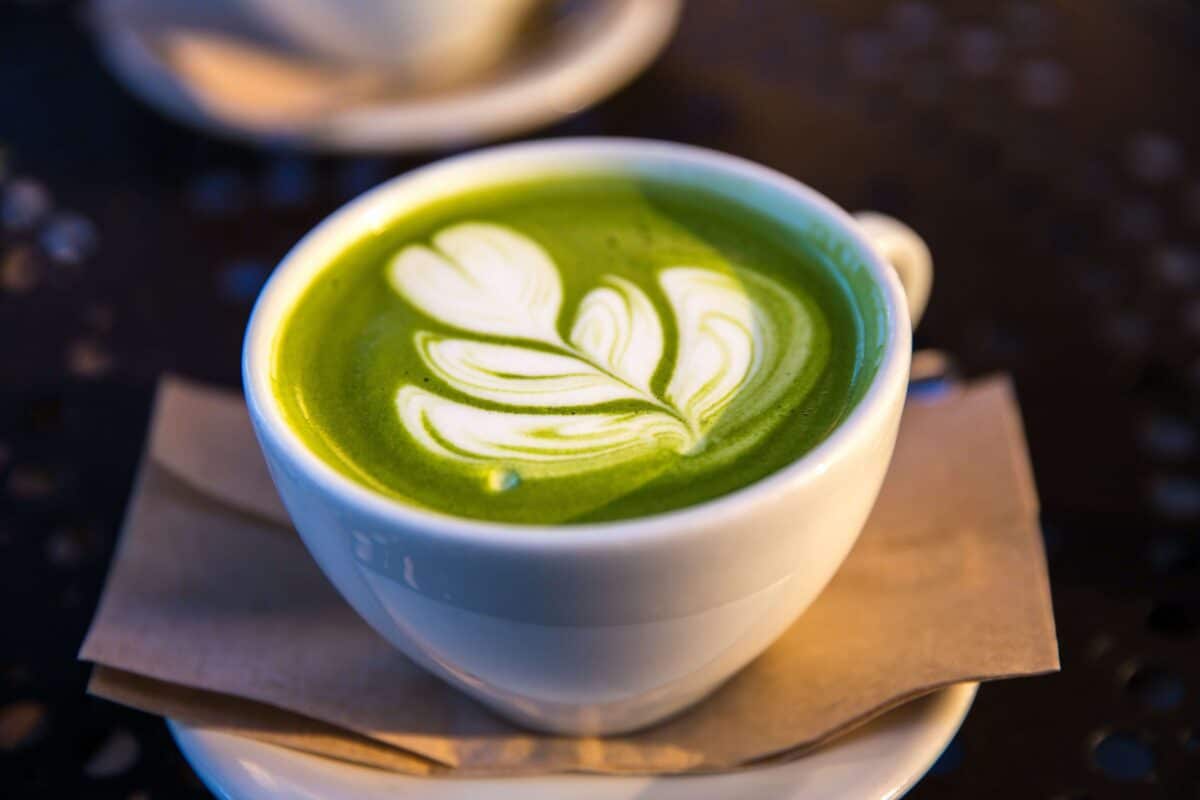Coffee is one of the most popular beverages in the world! It’s delicious, gives you a boost, and has both health benefits and health concerns associated with it (which we will discuss later in this blog). But can coffee and ulcerative colitis coexist together without symptoms or leading to flare? This blog post will explore the relationship of coffee and UC and more!
Coffee has been brewing since the early 15th century and its popularity can be seen around the world. In the 17th century, coffee beans were brought to Europe where people were skeptical about the beverage at first, but again, grew in popularity upon the pope’s approval and coffee houses began popping up across the continent (1). But is it healthy for us?
Current research shows that when consumed in moderate amounts, coffee has a variety of health benefits! Read on to learn more about coffee and ulcerative colitis.
Coffee And Ulcerative Colitis
Can Coffee Cause Ulcerative Colitis Flare-Up?
Has anyone ever told you that coffee can cause a flare? Well, that’s not really true. BUT, it does have the potential to contribute to unwanted side effects like urgency and diarrhea. It also has the potential to increase your heart rate, elevate anxiety, and increase blood pressure if too much is consumed. You can help mitigate these symptoms by trialing less coffee or coffee alternatives with varying amounts of caffeine. The average cup of coffee has about 95 mg caffeine.
If you consume coffee and notice an uptick in symptoms, consider decreasing the frequency and portion of coffee consumed as caffeine can give an overall laxative effect. It does this by increasing the contractions of the intestines (known as peristalsis) which moves the contents of your intestines further down the gastrointestinal tract to be excreted.
Coffee contains antioxidants, boosts energy levels, can help increase exercise performance, and in this study, has been associated with a reduction in risk of chronic disease (2).
Symptoms do not always indicate a flare. Working with an IBD focused dietitian can help you determine whether certain foods are a trigger for you. Dietitians can also help give you strategies on how to decrease your instance of trigger foods. Check out our blogs on ulcerative colitis friendly foods here and crohn’s friendly foods here.
5 Coffee Alternatives For Ulcerative Colitis
If you are interested in swapping out your morning cup of coffee for something with a little less caffeine content, we have compiled a list of options for you.
If you are currently in a flare, decreasing caffeine intake may help decrease some of your gastrointestinal symptoms. Therefore, one of the options below may be appropriate for you!
Check out the coffee alternatives below that are sure to give you an energy boost!
Matcha

Matcha is a lower caffeine alternative full of health benefits. It is made up of green tea leaves which can help support brain and heart health.
Matcha is also high in antioxidants, vitamin C, and L-theanine. L-theanine is an amino acid that is said to help decrease stress and anxiety, and improves mood and focus.
This antioxidant rich drink contains 38-88 mg caffeine per 2 oz. serving (which is a typical serving of matcha). The range in caffeine content is due to how long the hot water and matcha are steeped as well as if a hotter temperature is used, more caffeine can be extracted.
If you are wanting to add more liquid to your matcha, golden milk is a popular addition! Golden milk is simply milk, turmeric, ginger, cinnamon, black pepper, and maple syrup – more ingredients to add to the antioxidant load of this beverage with a touch of added sweetness.
Matcha helps give the consumer a slower boost of energy. Whereas coffee will give the consumer an instant boost. Matcha is less acidic than coffee, which in turn may decrease the instance of stomach discomfort when consuming it.
Green Tea
Green tea is often touted as one of the healthiest beverages to consume, but does this apply to people with ulcerative colitis too?
The studies on green tea have shown that it has the potential to aid in brain and heart health due to its high level of antioxidants, particularly EGCG (epigallocatechin gallate), which helps protect the cells from free radical damage.
EGCG has been shown to have anti-inflammatory properties as well. As an antioxidant, it helps protect cells from damage and helps decrease the activity of pro-inflammatory cells like tumor necrosis factor-alpha (4).
Of course, the name of the game with UC treatment is to lower levels of inflammation in the body, but don’t forget that this is still a caffeinated beverage (30-50 mg caffeine per 8 oz), so always remember to start slow if you are wanting to add this to your day.
If you’re looking for foods with anti-inflammatory properties, see our recent blog on Eating the Rainbow for IBD.
Dandelion Root

Yes, we are talking about that bright yellow weed that is often found on lawns across North America. Other than helping preserve the bee population, dandelion has nutritional attributes as well!
The dandelion plant contains fiber, vitamins A, C, and K, as well as iron, magnesium and potassium. The root can be ground into tea leaves and consumed as a warm, comforting beverage.
Dandelion root tea is completely caffeine free, so this may be a great option for those who are sensitive to caffeine jitters. Dandelion root tea has been traditionally used to improve constipation and gut health. Dandelion root contains inulin, a type of prebiotic fiber, which has been shown to improve stool consistency and increase transit time (3). Inulin can also be found in chicory root, onions, bananas, and garlic.
If you are currently experiencing frequent trips to the bathroom, be aware that high intake of inulin may exacerbate diarrhea or other gastrointestinal symptoms.
Mushroom Coffee
Mushroom based coffees seem to be gaining in popularity and it’s more than just throwing a few mushrooms into your coffee maker and hoping for the best!
Mushrooms are dried and the beneficial compounds from them are extracted and added to a coffee bean base. The most popular types of mushrooms used in coffees and lattes are Lion’s Mane, Reishi, Chaga, and Cordyceps. Believe it or not, they are supposed to taste exactly like regular coffee!
The amount of caffeine found in mushroom coffee is about half of a regular cup of coffee, with 50-60 mg of caffeine per cup. With the reduction in caffeine, you may notice less anxious symptoms, but what other benefits does this alternative provide?
Claims of improved heart health through a decrease in cholesterol, and improvements to the immune system have been found in animal and test tube studies, but more research needs to be conducted on mushroom coffees in humans (5).
If it’s something you enjoy, and you don’t mind the higher price tag it can be enjoyed like any of the other beverages listed above. If you are looking for something easier on the wallet, consider herbal teas like chamomile, peppermint, or ginger which can also have a positive effect on the gastrointestinal tract.
Herbal Teas

Chamomile, peppermint, and ginger teas are caffeine free options that have the potential to improve certain gut symptoms.
- Chamomile is often used to aid sleep and provide a calming effect on the individual
- Peppermint oil capsules are often used to help with indigestion for people with irritable bowel syndrome, however, there have been lesser effects seen in tea form.
- Ginger tea can help improve symptoms of nausea and help decrease gas
All three contain antioxidants to support a healthy immune system and have minimal negative effects on the gastrointestinal tract.
Key Takeaways
There are many caffeinated and non-caffeinated beverages available to enjoy! From coffee to matcha to mushrooms, there are varying levels of caffeine for consumers to try.
The options in this blog can help decrease the instance of bowel movements (often associated with high caffeine intake), decrease caffeine jitters, while still providing your body with some of the above health benefits.
If you need further support in ulcerative colitis symptom management, we are always here for you! Reach out to us now to schedule a free inquiry call.
References:
- National Coffee Association. NCA. (n.d.). https://www.ncausa.org/About-Coffee/History-of-Coffee
- van Dam, R. M., Hu, F. B., & Willett, W. C. (2020, July). Coffee, caffeine, and Health | Nejm. https://www.nejm.org/doi/full/10.1056/NEJMra1816604
- Bărboi, O.-B., Ciortescu, I., Chirilă, I., Anton, C., & Drug, V. (2020). Effect of inulin in the treatment of irritable bowel syndrome with constipation (review). Experimental and Therapeutic Medicine, 20(6), 1–1. https://doi.org/10.3892/etm.2020.9315
- Ohishi, T., Goto, S., Monira, P., Isemura, M., & Nakamura, Y. (2016). Anti-inflammatory action of Green Tea. Anti-Inflammatory & Anti-Allergy Agents in Medicinal Chemistry, 15(2), 74–90. https://doi.org/10.2174/1871523015666160915154443
- Benson, K. F., Stamets, P., Davis, R., Nally, R., Taylor, A., Slater, S., & Jensen, G. S. (2019). The mycelium of the trametes versicolor (Turkey tail) mushroom and its fermented substrate each show potent and complementary immune activating properties in vitro. BMC Complementary and Alternative Medicine, 19(1). https://doi.org/10.1186/s12906-019-2681-7




0 Comments